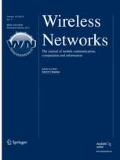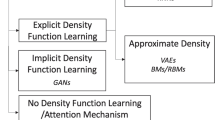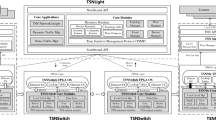Abstract
A performance evaluation is presented for a split-connection protocol for wireless Internet access which is denoted Split-Connection Mobile Tranport Protocol (SCMTP). It uses the general approach of the previously introduced Mobile End Transport Protocol (METP) but with differences that include a wireless-link channel-access protocol better matched with current cellular networks and more general ARQ methods for error control in the wireless link. In common with METP, SCMTP uses a standard TCP protocol on the wire-line connection and isolates the data flow in the wire-line network from the effect of wireless packet errors.
Performance is considered for the important case of a single SCMTP split connection between a fixed host and a mobile host with heavy downlink traffic from the fixed host to the mobile host. It is shown for these conditions that if the wire-line packet-error rate is small, a steady state is reached in which the connection's data flow in the wire-line network remains under the control of the receiver-advertised window of the TCP entity at the base station. Performance is evaluated for the steady-state operation of the SCMTP protocol, and relationships are established between the key properties of the split connection and the end-to-end performance of the connection.
It is shown that for heavy downlink traffic, the delay in the wire-line part of the connection does not affect steady-state throughput if the receiver buffer is sized appropriately. It is also shown that use of the go-back-N ARQ protocol on the wireless link yields better performance than the stop-and-wait ARQ protocol, although the performance with go-back-N ARQ is more sensitive to the characteristics of the wireless channel. It is shown that under a broad range of conditions, SCMTP with go-back-N ARQ provides nearly optimal utilization of the capacity of the wireless link.
Similar content being viewed by others
References
A. Bakre and B.R. Badrinath, Implementation and performance evaluation of indirect TCP, IEEE Trans. Comp. 46(3) (1997) 260–278.
H. Balakrishnan, V.N. Padmanabhan, S. Seshan and R.H. Katz, A comparison of mechanisms for improving TCP performance over wireless links, in: Proc. of ACM SIGCOMM 1996, Stanford, CA (August 1996) pp. 256–269.
R. Caceres and L. Iftode, Improving the performance of reliable transport protocols in mobile computing environments, IEEE J. Selected Areas Commun. 13(5) (1995) 850–857.
R.T. Chien, A.H. Haddad, B. Goldberg and E. Moyes, An analytic error model for real channels, in: Proc. of IEEE Internat. Conf. Commun., Philadelphia, PA (June 1972) pp. 15.7–15.12.
K. Fall and S. Floyd, Simulation-based comparisons of Tahoe, Reno, and SACK TCP, Comp. Commun. Review 26(3) (1996) 5–21.
P.A. Fishwick and R.M. Cubert, SimPack toolkit, http://www. cise.ufl.edu/~fishwick/simpack/simpack.html (1995).
Z.J. Hass and A. Warkhedi, The design and performance of mobile TCP for wireless networks, in: DIMACS Series in Discrete Mathematics and Theoretical Computer Science, Vol. 52 (2000) pp. 85–122.
M. Kojo, K. Raatikainen, M. Liljeberg, J. Kiiskinen and T. Alanko, An efficient transport service for slow wireless telephone links, IEEE J. Selected Areas Commun. 15(7) (1997) 1337–1348.
P. Manzoni, D. Ghosal and G. Serazzi, Impact of mobility on TCP/IP: An integrated performance study, IEEE J. Selected Areas Commun. 13(5) (1995) 858–867.
C.E. Perkins, IP mobility support for IPv4, Request for Comments 3220 (January 2002).
W.R. Stevens, TCP/IP Illustrated, Vol. 1 (Addison-Wesley, Reading, MA, 1994).
K.-Y. Wang and S.K. Tripathi, Mobile-end transport protocol: An alternative to TCP/IP over wireless links, in: Proc. of IEEE Infocom 1998, San Francisco, CA (March 1998) pp. 1046–1053.
F. Xie, Modeling and performance analysis of a split-TCP scheme for mobile internet access, Ph.D. Dissertation, ECE Department, Clemson University (May 2000).
F. Xie, J.L. Hammond and D.L. Noneaker, Steady-state analysis of a split-connection scheme for internet acesss through a wireless terminal, IEEE/ACM Trans. Networking, to appear.
Author information
Authors and Affiliations
Corresponding author
Rights and permissions
About this article
Cite this article
Xie, F., Hammond, J.L. & Noneaker, D.L. Evaluation of a Split-Connection Mobile Transport Protocol. Wireless Networks 9, 593–603 (2003). https://doi.org/10.1023/A:1025904417892
Issue Date:
DOI: https://doi.org/10.1023/A:1025904417892




